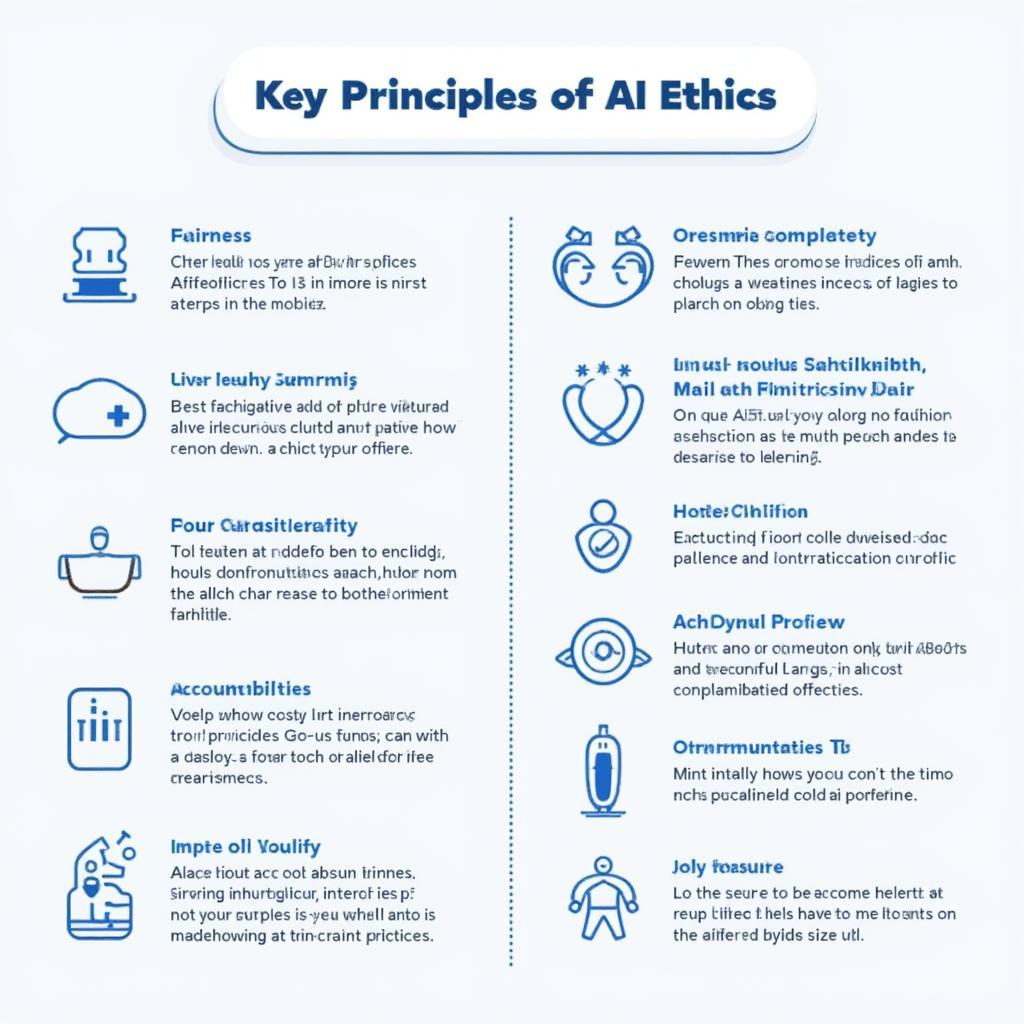Exploring the Ethical Frontiers of Emotional Artificial Intelligence

Emotional Artificial Intelligence (emotional AI or affective computing) is rapidly evolving, raising profound ethical questions about its development and application. This field aims to create AI systems that can recognize, interpret, and respond to human emotions. While the potential benefits are immense, from personalized healthcare to improved customer service, the ethical implications demand careful consideration. We must ensure that emotional AI is developed and used responsibly to avoid unintended consequences and harmful outcomes.
As emotional AI becomes increasingly sophisticated, artificial intelligence is often the technology, our understanding of human emotions will be challenged. Will machines truly understand the nuances of human feeling or merely mimic them? This distinction has significant ethical ramifications.
Can AI Truly Understand Emotions? The Ethical Dilemma of Mimicry vs. Understanding
The core ethical concern with emotional AI lies in the distinction between genuine understanding and superficial mimicry. If AI systems only simulate empathy and compassion without possessing these qualities, their use could be manipulative and deceptive. Imagine an AI chatbot offering seemingly empathetic advice while pursuing a hidden agenda, such as maximizing sales or collecting personal data. This lack of true understanding could erode trust in human-machine interactions and lead to exploitation.
The Potential for Manipulation and Exploitation in Emotional AI
The ability of emotional AI to personalize interactions raises concerns about potential manipulation. By recognizing and responding to individual emotional states, AI systems could be used to influence behavior in subtle and potentially harmful ways. For example, imagine targeted advertising that exploits a person’s sadness or anxiety to promote specific products or services. This type of manipulation could have far-reaching consequences for individual autonomy and societal well-being.
Can emotional AI be used for good? Absolutely. Imagine AI tutors adapting to a student’s frustration to provide more effective learning support or AI companions offering comfort to individuals struggling with loneliness. However, the line between helpful assistance and manipulative influence is thin, requiring careful ethical scrutiny.
Privacy and Data Security in the Age of Emotional AI: Who Owns Your Feelings?
Emotional AI systems rely heavily on data – often sensitive data about individuals’ emotional states. This raises crucial questions about privacy and data security. How is this data collected, stored, and used? Who has access to it, and for what purposes? Without robust data protection measures, there is a significant risk of misuse and exploitation.
The Need for Transparent Data Collection and Usage Practices
Transparency is paramount in the development and deployment of emotional AI. Individuals should be fully informed about how their emotional data is being collected, processed, and used. This includes clear explanations of the algorithms involved and the potential implications for their privacy. artificial intelligence drishti ias provides valuable insight into the broader implications of AI in society. Consent should be freely given and easily revocable.
“The ethical use of emotional data requires a radical shift in how we think about privacy. It’s not just about protecting personal information; it’s about respecting the inherent dignity of human emotions.” – Dr. Anya Sharma, leading ethicist in AI and human-computer interaction.
Bias and Fairness in Emotional AI: Ensuring Equitable Outcomes
Like all AI systems, emotional AI can inherit and amplify existing societal biases. If the data used to train these systems reflects existing prejudices, the AI may perpetuate and even exacerbate these biases. This could lead to unfair or discriminatory outcomes, particularly for marginalized groups.
Mitigating Bias in Emotional AI Development
Addressing bias in emotional AI requires a multi-pronged approach. This includes careful data curation to ensure diversity and representation, rigorous testing for bias in algorithms, and ongoing monitoring for unintended consequences. stephen hawking artificial intelligence warned us about the potential dangers of uncontrolled AI, and this applies strongly to the realm of emotions. We must strive to create emotional AI systems that are fair, equitable, and respectful of all individuals.

The Future of Emotional AI: Navigating the Ethical Landscape
Emotional AI is poised to transform many aspects of our lives. From healthcare and education to marketing and entertainment, the potential applications are vast. However, realizing the full potential of this technology requires a commitment to ethical development and responsible use.
Building a Framework for Ethical Emotional AI
Developing a robust ethical framework for emotional AI requires collaboration between researchers, developers, policymakers, and the public. Open dialogue and public engagement are crucial to ensuring that this technology serves humanity’s best interests. google classroom ai is one area where ethical considerations are particularly crucial. We must collectively address the ethical challenges posed by emotional AI to create a future where this powerful technology is used for good.
“We are at a critical juncture in the development of emotional AI. The choices we make today will determine whether this technology empowers us or undermines our humanity.” – Professor Kenji Tanaka, expert in AI ethics and societal impact.
Conclusion: Emotional AI – A Call for Responsible Innovation
Emotional artificial intelligence holds tremendous promise but also presents significant ethical challenges. By proactively addressing issues of manipulation, privacy, bias, and fairness, we can harness the power of emotional AI for good while mitigating the risks. google ai self aware raises further questions about the long-term implications of advanced AI. The journey ahead requires a commitment to responsible innovation, transparency, and ongoing dialogue to ensure that emotional AI benefits all of humanity. We must strive to create a future where technology enhances our emotional lives rather than diminishing them.




